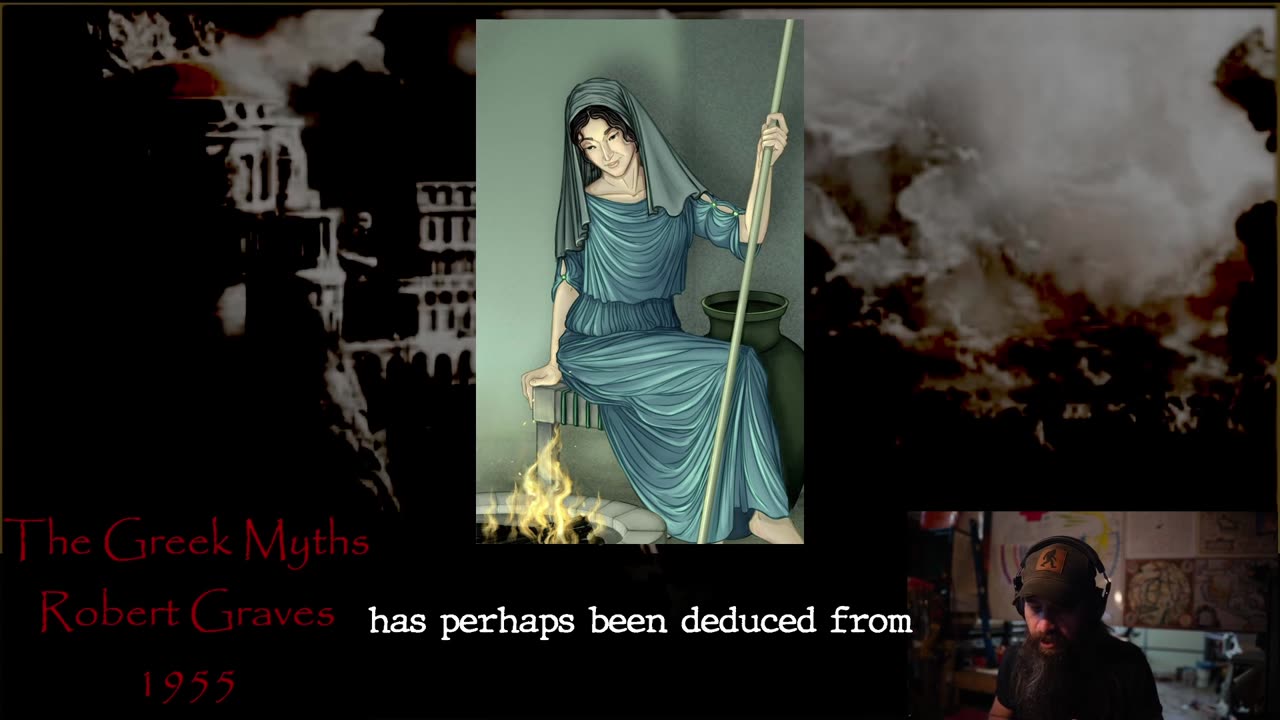Premium Only Content

The Greek Myths - B1 - 20
The Greek Myths - B1 - 20
This video details Chapter 20 from a discussion on Greek mythology, particularly focusing on the goddess Hestia. It emphasizes her role as a virgin deity who avoids conflict and embodies the hearth's sanctity, showcasing her importance in domestic life and hospitality.
Key Points:
Hestia's Virginity and Role
Hestia, as one of the Olympian gods, uniquely abstains from war and romantic relationships. She vowed to remain a virgin forever, which earned her special favor from Zeus, who granted her recognition in public sacrifices, reflecting her importance in maintaining peace and purity in Olympus.
Protection and Reverence
Hestia is revered in homes and public spaces as the goddess of the hearth, symbolizing security, happiness, and the sacred duty of hospitality. People would seek her protection, illustrating her role in domestic life and societal values.
Symbolism of the Hearth
The hearth, represented in ancient representations as a heap of glowing charcoal, symbolizes warmth and community gathering. This imagery connects Hestia with the concept of home, highlighting her function in family and clan life.
Cultural Elements and Myths
The video discusses cultural myths surrounding Hestia, including her encounters with the god Priapus, which serve as warnings against sacrilegious acts towards women. It underscores various artifacts that represent her worship and the spiritual practices associated with the hearth.
Charcoal Mounds & Rituals
Evidence of rituals surrounding Hestia includes the use of charcoal mounds in ancient worship practices. These mounds were central to maintaining the sacred fire, showing the connection between Hestia and the physical act of tending the hearth.
-
![Mr & Mrs X - [DS] Trafficking Empire – The Pedo Network Island, The Cover-Up: Part 2 - Ep 6](https://1a-1791.com/video/fww1/f8/s8/1/y/p/x/f/ypxfz.0kob-small-Mr-and-Mrs-X-DS-Trafficking.jpg) 59:56
59:56
X22 Report
17 hours agoMr & Mrs X - [DS] Trafficking Empire – The Pedo Network Island, The Cover-Up: Part 2 - Ep 6
47K15 -
 1:03:07
1:03:07
Candace Show Podcast
1 day agoI’M BACK! And STILL Asking Questions (Sorry Brigitte). | Candace Ep 233
82.1K198 -
 1:12:09
1:12:09
Wendy Bell Radio
6 hours agoPet Talk With The Pet Doc
6.43K34 -
 27:15
27:15
Liberty Hangout
2 days agoThe Most DELUSIONAL Democrats on Earth!
27.8K128 -
 13:13
13:13
Mrgunsngear
17 hours ago $3.37 earnedStreamlight TLR-1 HP Review: Can It Dethrone Surefire?
21.2K9 -
 38:41
38:41
JohnXSantos
23 hours ago $0.56 earnedHow To Start A CLOTHING BRAND on a BUDGET! Step X Step (2025)
6.75K1 -
 1:26:34
1:26:34
Man in America
19 hours agoExposing the Cover-Up That Could Collapse Big Medicine: Parasites
70.7K65 -
 30:57
30:57
Her Patriot Voice
16 hours ago $15.61 earnedDemocrats More Unhinged Than EVER Before!
93.3K127 -
 29:13
29:13
Clownfish TV
1 day agoGen Z are Becoming the Boomers?! | Clownfish TV
15.9K36 -
 1:48:31
1:48:31
Squaring The Circle, A Randall Carlson Podcast
19 hours agoMEGA Tsunamis and the formation of our World ft. Dr. Dallas Abbot
31.2K7